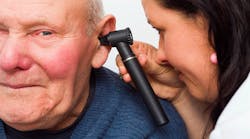Audiologists, Emergency Managers and Occupational Therapists Face Low Risk from Automation
How likely are you to be replaced by a robot or a computer program? It depends, according to a new report, “How Vulnerable Are American Communities to Automation, Trade and Urbanization?” Workers in data entry, telemarketing and watch repair are most likely to be targeted by automation, while surgeons...not so much.
The study, prepared by the Center for Business and Economic Research (CBER) and the Rural Policy Institute’s Center for State Policy at Ball State University, found that the rise of automation and offshoring could extend such job losses beyond the factory floor.
“Automation is likely to replace half of all low-skilled jobs,” says CBER director Michael Hicks. “More worrisome is that there is considerable concentration of job loss risks across labor markets, educational attainment and earnings. This accrues across industries and is more pronounced across urban regions, where economies have concentrated all net new employment in the United States for a generation.”
The study also found that low risk of automation is associated with much higher wages, averaging about $80,000 a year. Occupations with the highest risk of automation have incomes of less than $40,000 annually.
The top automatable occupations, number of jobs and average annual salary includes data entry keyers, 216,000, $29,000; mathematical science occupations, 1,800, $66,210; telemarketers, 237,000, $23, 530; insurance underwriters, 103,000, $65,000; tax preparers, 90,400, $36,450; photographic process workers and processing machine operators, 28,800, $26,590; library technicians, 101,800, $34,750.
The least automatable occupations, number of jobs and average annual salary includes recreational therapists, 18,000, $45,890; emergency managers, 10,000, $67,330; first-line supervisors of mechanics, installers and repairers, 447,100, $63,010; mental health and substance abuse social workers, 117,000, $42,170; audiologists, 13,200, $74,890; orthotrists and prosthetists, 8,300, $64,430; health technologists and technicians, 102,200, $41,260; and hearing aid specialists, 5,900, $49,600.
While drafters, computer programmers, data entry keyers, statisticians and mathematicians and film and video editors were considered the most “offshorable” occupations, the list of “least offshorable” occupations closely mimicked the list of least automatable occupations, with the edition of the 6,800 oral and maxillofacial surgeons who average an annual wage of $233,900.

